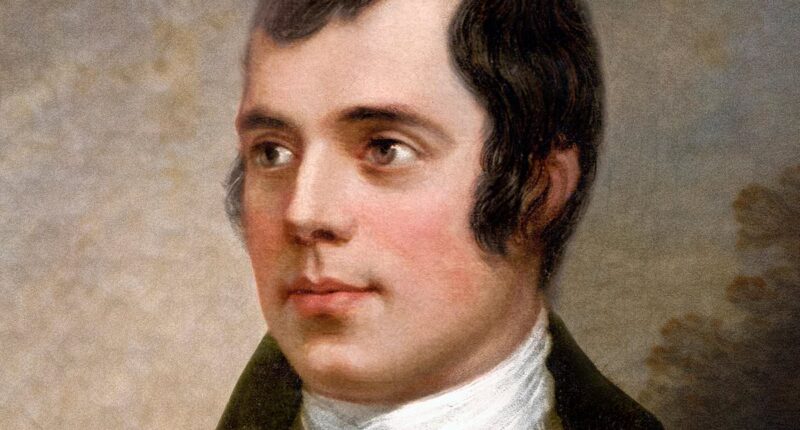For centuries he has been celebrated across the world for his plain-speaking verse and wry observations on the human condition.
But Robert Burns has been consigned to history by Scotland’s education chiefs, who have dropped his poems as a main topic from the school curriculum.
Scotland’s Bard will make way for more ‘diverse’ and modern writers in sweeping changes to set texts in secondary schools.
The Scottish Qualifications Authority has ‘repositioned’ Burns from his place as a standalone writer and moved his works into an anthology of Scottish poetry.
The SQA made the decision following a consultation on English set texts for National 5 and Highers English courses.
His works have been reduced in favour of more ‘relevant’, modern novels such as those about teenagers.
Professor Gerard Carruthers, chair of Scottish literature at the University of Glasgow, hit out at the move.
He said: ‘We should never have enough of him and it’s vitally important that we provide our young people with endless opportunities to study him.

The SQA has ‘repositioned’ Robert Burns from his place as a standalone writer and moved his works into an anthology of Scottish poetry

Scotland’s Bard will make way for more ‘diverse’ and modern writers in sweeping changes to set texts in secondary schools
‘He possesses a genius with words that’s almost freakish; similar to Shakespeare, Joyce and Blake.’
‘Nor can you overstate his influence on international literature.’
He told Scottish Field magazine: ‘He’s the man who broadcast to the world Scotland’s image in its landscapes, songs and romance.
‘Burns creates the Scottish canvas and it’s a huge one.’
But Dr Ronnie Young, Associate Director of the Centre for Robert Burns Studies at the University of Glasgow, said: ‘By opening up the curriculum to a wider range of writers, voices, and experiences, SQA recognises the continued relevance of Scottish literature to the curriculum and its potential to speak to a diverse audience of students.’
The controversial shake-up has led to other established greats to be effectively downgraded too.
Lewis Grassic Gibbon’s classic novel Sunset Song will no longer be included in the set text list for pupils studying Higher English.
The SQA said it was important to acknowledge Burns’ cultural significance but pointed out that interest in his works has dwindled.

Professor Gerard Carruthers, chair of Scottish literature at the University of Glasgow , hit out at the move
Of 35,000 students who sat Higher English last summer, only 83 chose to answer a question on Burns.
Other removed texts include The Cheviot, the Stag and the Black, Black Oil by John McGrath, the 1970s play that examines Scottish history through a radical socialist lens, and The Cone Gatherers by Robin Jenkins.
The SQA stressed that its updated list of Scottish set texts was the result of a consultation which received more than 2,500 responses. ‘The feedback we received was clear,’
Robert Quinn, the SQA’s head of English, said: This is the first review and update of the Scottish set text list since 2018 and rightly it was an opportunity to consider the titles on it and assess how teachers and learners engage with these works and see if and where any changes were necessary.
‘The feedback we received was clear. Teachers and lecturers wanted to retain the most popular texts, but they also wanted a list that is diverse, and relevant for learners.
‘From learners we heard them say they wanted to see more modern and diverse texts that had challenging themes and strong emotional content included in the revised list.
‘This approach will give teachers and lecturers the opportunity to introduce National 5 and Higher learners to several new poets, who will now sit along Burns and other culturally significant writers on the list.’
New titles include Duck Feet by Ely Percy, a coming-of-age novel set in a Renfrewshire school; the Gaelic antiwar play Sequamur and poems by Imtiaz Dharker, who was born in Pakistan but grew up in Glasgow.

















